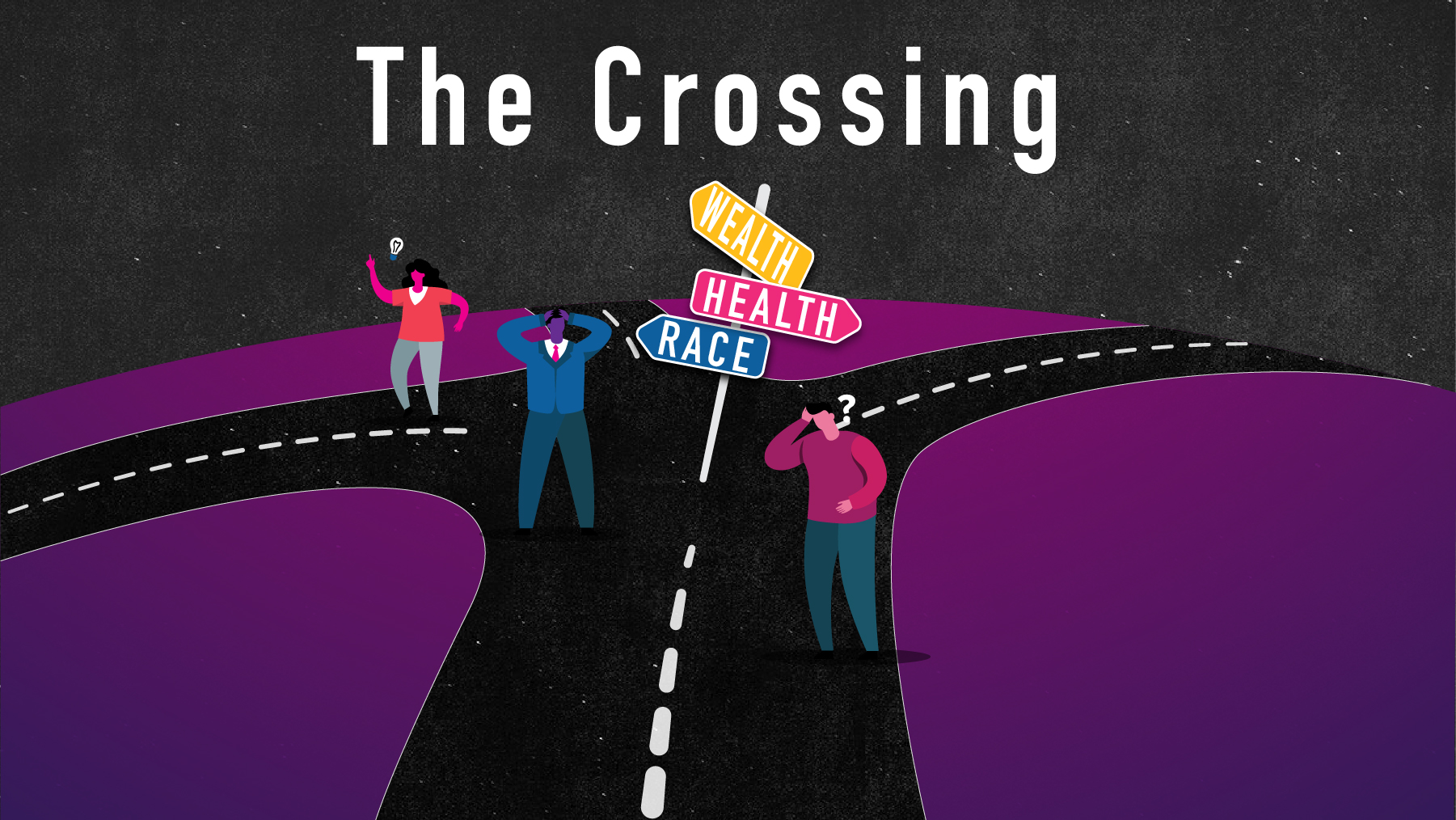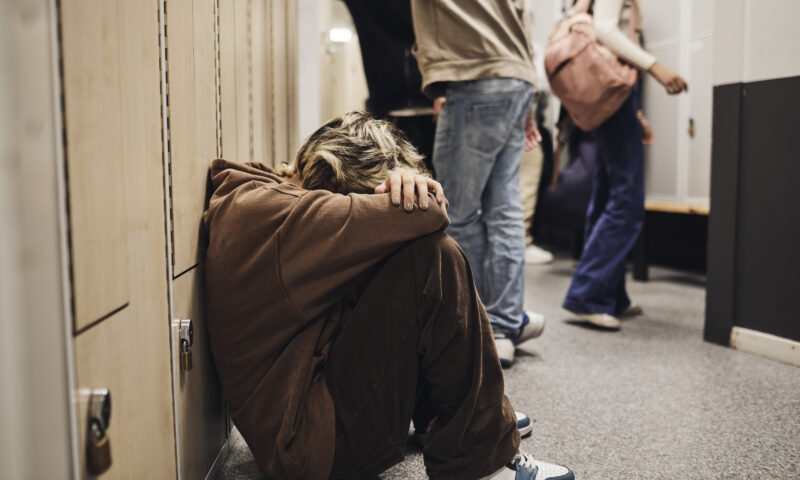The Crossing Podcast
The Crossing: How Californians’ Health Is Tied to Wealth and Race
In a special podcast series, Mark Kreidler talks to experts and advocates about the economic and racial determinants of health in the Golden State.

With 41 years as a registered nurse and a lived experience as the biracial daughter of Japanese and African-American parents, Cathy Kennedy, co-president of the California Nurses Association, is certain of one thing.
“Health care,” she says, “is a human right.” (Disclosure: The CNA is a financial supporter of this website.) But in California, as elsewhere across the U.S., health care is a human right only in theory. Increasingly and unerringly, health outcomes in the state are driven by such factors as race, ethnicity and income — and the divide between the haves and have-nots is growing.
The COVID-19 pandemic set into motion a display of what happens when entire groups of people are left behind in the health care conversation — the culmination, experts say, of decades of neglect in an industry that is built to squeeze profit out of those who can afford to pay, and to ignore or underserve the rest of the population.
With Capital & Main’s weeklong podcast series The Crossing, we take a closer look at the intersection of health, wealth and race in California. The same groups that have constantly struggled to access health care in the state – lower income families, Blacks and Latinos, immigrant workers, the homeless — are disproportionately represented among both COVID cases and deaths.
But the pandemic exposed those inequities more than it exacerbated them. The roots of the problem lie in a health system mired in top-heavy administration, often steered by those with the most political and lobbying power. And those who propose concrete solutions, such as single payer or Medicare for All, face intense pushback from companies with billions of dollars in spending power.
In this series, we’ll meet people like Kennedy, who has seen first hand the damaging health outcomes that occur among Californians who either cannot afford or can’t access routine care, and the director of a Los Angeles-based system of community clinics that can hardly meet the rising need. We will speak with solutions-oriented experts, including a politician working to extend quality health care to more residents of the state.
Increasingly, your race, ethnicity and income determine your essential well-being in California. It is at the intersection of these factors that the most honest conversations around changing the system can occur — and it is from such dialogue that a road to health care as a human right may ultimately be paved.
Copyright 2021 Capital & Main

-

 Latest NewsJanuary 13, 2026
Latest NewsJanuary 13, 2026Straight Out of Project 2025: Trump’s Immigration Plan Was Clear
-

 Column - State of InequalityJanuary 22, 2026
Column - State of InequalityJanuary 22, 2026On Eve of Strike, Kaiser Nurses Sound Alarm on Patient Care
-

 Column - California UncoveredJanuary 14, 2026
Column - California UncoveredJanuary 14, 2026Keeping People With Their Pets Can Help L.A.’s Housing Crisis — and Mental Health
-

 Latest NewsJanuary 16, 2026
Latest NewsJanuary 16, 2026Homes That Survived the 2025 L.A. Fires Are Still Contaminated
-

 The SlickJanuary 20, 2026
The SlickJanuary 20, 2026The Rio Grande Was Once an Inviting River. It’s Now a Militarized Border.
-

 Column - State of InequalityJanuary 15, 2026
Column - State of InequalityJanuary 15, 2026When Insurance Says No, Children Pay the Price
-

 Latest NewsJanuary 21, 2026
Latest NewsJanuary 21, 2026Honduran Grandfather Who Died in ICE Custody Told Family He’d Felt Ill For Weeks
-

 The SlickJanuary 19, 2026
The SlickJanuary 19, 2026Seven Years on, New Mexico Still Hasn’t Codified Governor’s Climate Goals
